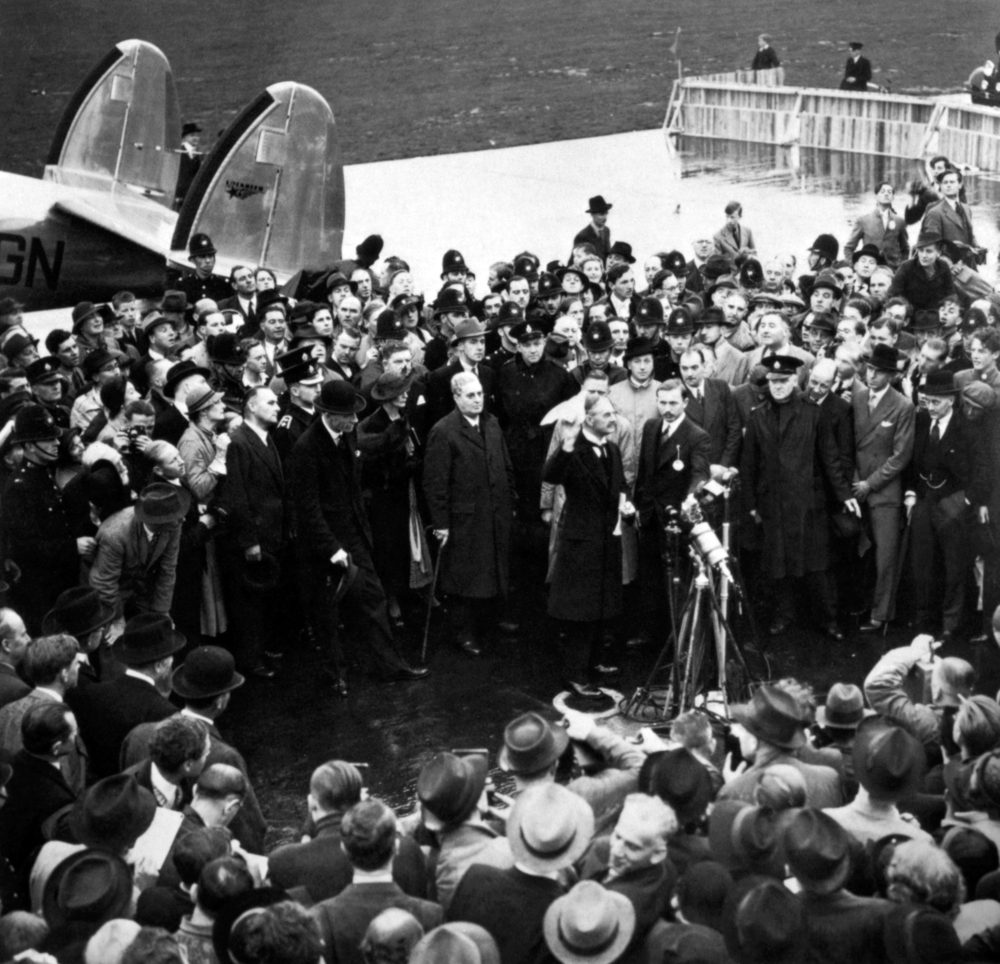It’s often a touted piece of trivia that Adolf Hitler was nominated for a Nobel Peace Prize. As strange as it may sound in today’s world, it is true. However, it’s less well-known that the nomination was actually a sarcastic joke that fell victim to the quirks of the Nobel nomination system.
Hitler was nominated in 1939 by Swedish politician Erik Gottfrid Christian Brandt. Not everyone has the honor of nominating people for the prize. The Norwegian Nobel Committee only accepts nominations from people who hold certain positions in the upper echelons of the establishment, including university professors, previous winners of the Nobel Peace Prize, and members of national assemblies or national governments.
As a member of the Swedish Parliament, Brandt fit the bill, but his nomination was not intended to be serious. Brandt was part of the center-left Social Democratic Party and an “antifascist.” His nomination of Hitler was intended as an ironic dig towards other members of the Swedish parliament who were putting forward nominations for then-British Prime Minister Neville Chamberlain.
When Chamberlain took office in 1937, Hitler had already begun aggressively building up Germany’s military and setting his sights on the German-speaking lands of Europe. Chamberlain’s stance was one of appeasing Hitler. The horrors of the First World War were still fresh in his memory, so he was keen to avoid armed conflict with Nazi Germany.
On September 30, 1938, the Munich Agreement was signed by Germany, the UK, France, and Italy, which permitted the German annexation of the Sudetenland in western Czechoslovakia on the condition that Hitler made no further demands for territories in Europe.

UK Prime Minister Neville Chamberlain celebrating the Munich Agreement at the airport on his return to England in 1938. Image credit: Everett Collection/Shutterstock.com
Following the agreement, Chamberlain returned home and famously declared that he had secured “peace for our time.” This apparent success prompted 12 Swedish members of parliament to nominate him for the Nobel Peace Prize.
Peace, of course, was far from guaranteed, and it appears that many of Chamberlain’s contemporaries – including Brandt – were skeptical of this self-declared success.
If you take a look at Brandt’s letter to the Norwegian Nobel Committee, it’s pretty clear he’s being heavily sarcastic. According to the Nobel Peace Center, the letter reads:
“I hereby humbly suggest that the Peace Prize for 1939 is awarded the German Chancellor and Führer Adolf Hitler, a man, who in the opinion of millions of people, is a man who more than anyone in the world has deserved this highly respected reward. Authentic documents reveal that in September 1938 world peace was in great danger; it was only a matter of hours before a new European war could break out. The man who during this dangerous time saved our part of the world from this terrible catastrophe was without no doubt the great leader of the German people. In the critical moment he voluntarily did not let weapons speak although he had the power to start a world war.
By his glowing love for peace, earlier documented in his famous book Mein Kampf – next to the Bible perhaps the best and most popular peace of literature in the world – together with his peaceful achievement – the annexation of Austria – Adolf Hitler has avoided the use of force by freeing his countrymen in Sudetenland and making his fatherland big and powerful. Probably Hitler will, if unmolested and left in peace by warmongers, pacify Europe and possibly the whole world.
Sadly there still are a great number of people who fail to see the greatness in Adolf Hitler´s struggle for peace. Based on this fact I would not have found the time right to nominate Hitler as a candidate to the Nobel Peace Prize had it not been for a number of Swedish parliamentarians who have nominated another candidate, namely the British Prime Minister Neville Chamberlain. This nomination seems to be poorly thought. Although it is true that Chamberlain through his generous understanding of Hitler´s struggle for pacification has contributed to the saving of world peace, the last decision was Hitler´s and not Chamberlain’s! Hitler and no one else is first and foremost to be thanked for the peace which still prevails in the greater part of Europe; and this man is also the hope for peace in the future.
As Chamberlains obviously can claim his share of the peacemaking, he could possibly have a smaller part of the Peace Prize. But the most correct thing to do is not to put another name beside the name of Adolf Hitler and thereby throwing a shadow on him. Adolf Hitler is by all means the authentic God-given fighter for peace, and millions of people all over the world put their hopes in him as the Prince of Peace on earth.”
Needless to say, the joke didn’t go down well at the time. Anti-Fascists in Sweden were outraged by his nomination and denounced Brandt as “insane, clumsy, and a traitor to the values of the working class.” His lectures were canceled and he received a number of violent threats from the public.
Many didn’t believe the nomination was satire, but it appears that history is on the side of Brandt. Appeasement ultimately didn’t stop World War II – in fact, some argue the policy directly paved the path to war by empowering Hitler’s aggression.
It’s also clear that Brandt remained strongly anti-fascist throughout the war. He criticized his own party for not accepting more Jewish refugees from Germany into Sweden and was one of the first politicians to speak about the rumors of German extermination camps in Poland.
His joke, however, continues to be misinterpreted.
Source Link: Was Hitler Really Nominated For A Nobel Peace Prize?